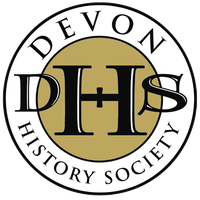ABSTRACTS
The Escheators, their Duties and Role in the Heritage of Devon’s Landed Families, Charles Scott-Fox.
Research undertaken in 2015-2016 for a dissertation on inheritance in the medieval years 1066-1400 led to a particular interest in the role of the escheator, a relatively unknown official of the feudal regime. The office of the escheator is subject to contrasting opinions on his status, vis-à-vis the sheriff and other county officers, and deserves further analysis of his role and influence on the inheritance of Devon’s landed gentry and the status of men appointed to secure the king’s escheats and wardships, a vital source of income for the Crown. This paper focuses on their duties, and suggests that they were more important officials than generally appreciated.
Devon Roodscreens after the Reformation: Destruction and Survival, Michael Aufrère Williams.
In Devon’s 479 parish churches, it has been possible to identify 120 currently extant roodscreens (whole or in part), also 145 that have been destroyed (or for which only fragments remain) since the Reformation, leaving a large total of 214 screens and lofts unaccounted for. This article attempts to account for the reasons for the extant screens’ survival, while at the same time explore the vicissitudes of fortune which have governed their fate. It is thus possible to delineate three time periods within the five hundred years since the Reformation, and so consider which of these periods had the greatest effect upon the fortunes of Devon’s roodscreens.
The Colyton Feoffees and Twenty Men, Sarah Charman.
This article examines the history of the two distinct groups, the Colyton Feoffees and the Twenty Men (together known as the Chamber of Feoffees), who were originally appointed to administer the parish’s charity lands, and looks at the changing relationship between the two bodies. Much of the material deployed here is taken from the Chamber’s historic and nationally significant archive. The collection, currently deposit number 1585F at the Devon Heritage Centre, is being digitised and summarised by Colyton Parish History Society volunteers with the aid of a grant from the Heritage Lottery Fund, and has proved to contain many fascinating insights into the actions of the two groups.
The Bidlakes of Bridestowe and the Young Pretender, Elly Babbedge.
The Bidlakes of Bridestowe found themselves the target of a bold fraudster when their male line of succession died out in the early eighteenth century. Not only did Richard Becklake falsify his ancestry in the parish registers, he also forged deeds of title against which he borrowed vast sums of money to furnish a lavish life-style in London. Even after a high profile court case, Becklake continued to live as Sir Richard Bidlake, Bart., dressing in finery and frequenting the inns and coffee houses of the city, and passing the role of ‘pretender’ to his nephew Henry Tucker of Crediton. The Bidlake family felt compelled to defend their title until the death of Josias Tucker from consumption in 1820.
Devon Dairying: A Look Back, Helen Harris.
The origins of dairying in Devon go back thousands of years, from primitive beginnings through centuries of development and change. Dairying has always been of special importance in the county, notably in the in the preparation of cream and butter in traditional ways. Modern times have brought needs for improved standards, and for increased production, particularly during wartime and in early succeeding years. The degree of change over the centuries and the acceleration in recent decades is indeed staggering, having the effect of changing systems from pleasantly rural to intensively ‘high tech’.
The Church of England and the Great War: the Clergy in North Devon, Andrew Jones.
The Church of England was caught off-balance by the first World War. On the one hand, the Church espoused a gospel, key elements of which were love (your enemy) and peace; on the other hand, there was the strong pull of patriotic duty at a time of dire need. How did the clergy ‘on the ground’ react? This article studies the clergy of north Devon in war-time. The conflict laid bare how ill-equipped they were to make any kind of theological response to the bloodshed which engulfed the country.
Participation in the Female Community by Women of the Frood Family of Topsham: Gentility, Suffrage, WWI and Afterwards, Penny Bayer.
This case study describes how the lives of the women of a colonial professional middle class family, the Froods of Topsham, show extensive participation in the female community. Notions of female gentility sit alongside suffrage campaigning and achievement of professional success in spheres open to them – education of women, the women’s services and art. This study places previous work on the suffrage role of Mrs Mary Frood by Mike Patrick, Elizabeth Crawford and Penny Bayer in a wider context.
